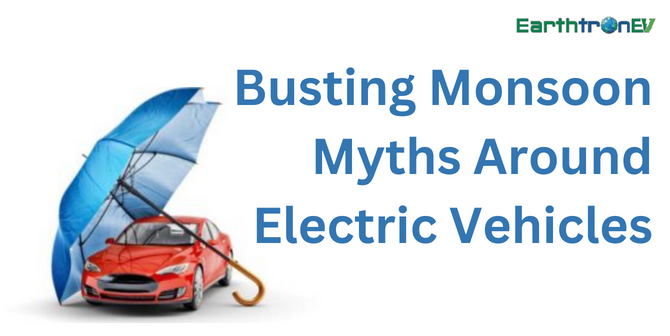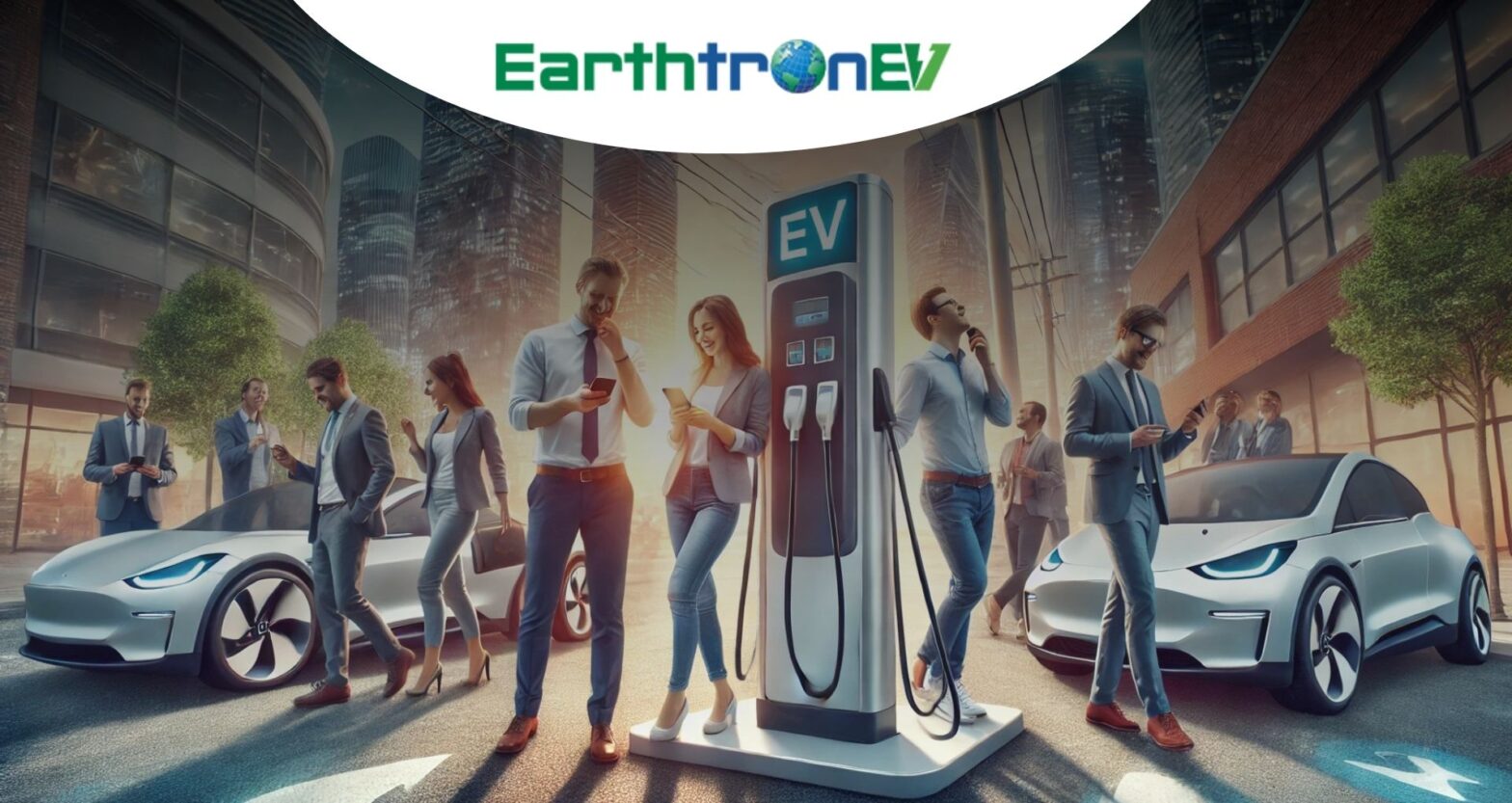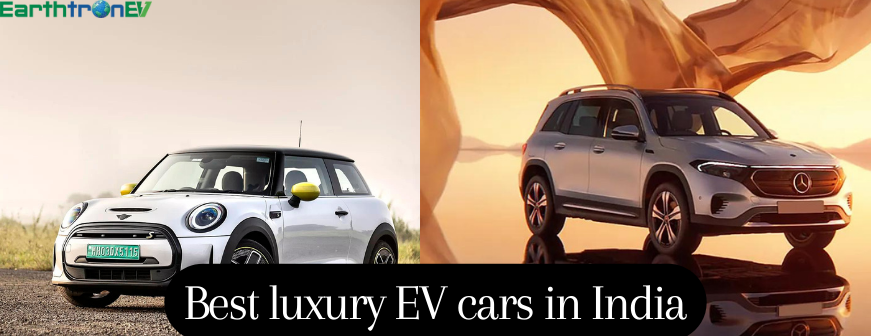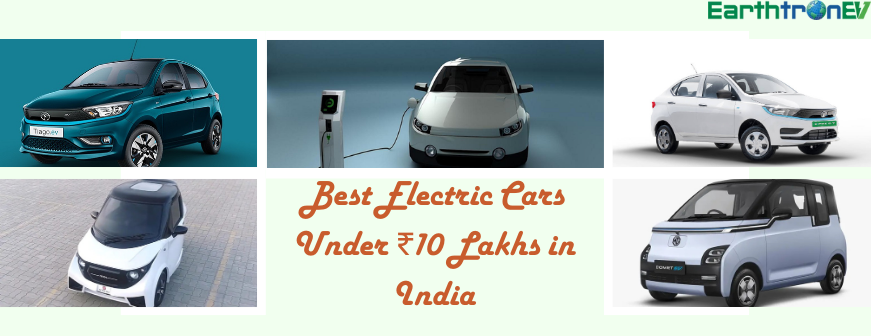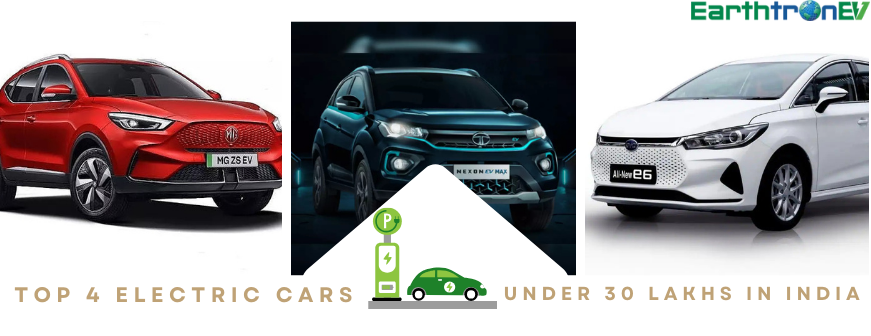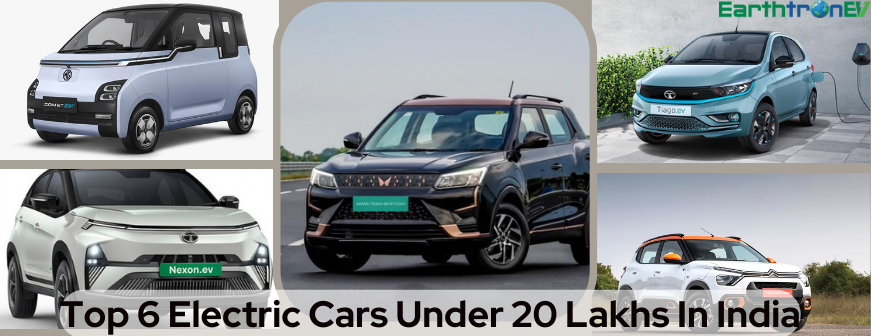Electric vehicle demand has increased as air pollution has worsened. Many believe electric cars are the future. Few people realise that carbon dioxide emissions and the “Future is Now” slogan are driving EV adoption.
There are many misunderstandings about how things work in the new mobility era. We dispelled some electric car myths and presented the truth.
Electric vehicles (EVs) are cleaner, quieter, and cheaper than gas-powered cars, attracting auto industry attention. Demand for environmentally friendly transportation like electric vehicles has increased due to global environmental awareness. Despite growing interest in electric cars, some myths must be dispelled.
This article will explain some common myths about how rain affects electric vehicles. People who want to buy electric cars are worried about the monsoon season and its unique problems, like heavy rain and roads that flood. Do electric vehicles really struggle in the rain? Can you drive them safely in the rain? Some of the things we’ll investigate to determine the truth include the following.
Come along as we dispel some urban legends and find out how well electric cars perform in the monsoon. If you drive an electric vehicle or are thinking about making the switch, you should be familiar with its performance in wet conditions. Let’s take a deep dive and uncover the truth behind the electric car monsoon rumours.
Myth: No electric cars can charge quickly.
Truth: Battery and other technology have made charging an electric vehicle faster in recent years. The charging port’s power output and battery capacity are crucial when charging an electric vehicle.
Myth: Electric cars lose power rapidly.
Truth: The truth is that you won’t be stuck in the middle of nowhere if the battery in your electric car dies. This is no longer the case thanks to technological advancements; cars now provide accurate information about how far a single charge will take you. Your car will provide a warning even with a low charge.
The app gives you a list of the fast charging locations that are closest to you and then directs you there.
Myth: Electric cars and lithium batteries in general are risky
Truth: Electric vehicles are environmentally friendly but unsafe. In case of collision, Contrary to popular belief, lithium-ion batteries do not cause more fires in collisions than petrol or diesel. A lithium-ion battery pack powers the vehicle in various temperatures.
Myth: Electric cars are sluggish
Truth: It is untrue that electric cars are sluggish, at least not in the modern world. Most models outperform petrol and diesel models in speed. Electric motors that deliver maximum torque at a pedal help electric cars accelerate quickly. Thus, when you press the accelerator, a surge of energy propels your vehicle from a stop to 100 mph in 9.9 seconds (based on internal tests).
Myth: Widespread acceptance of electric vehicles requires a suitable charging infrastructure.
Truth: When it comes to charging, most owners prefer to do it overnight at home or during the day at their place of employment. However, you will eventually need to charge it publicly on a road trip. The number of public charging stations for electric vehicles (EVs) in the United States is growing quickly, thanks to investments made by a number of new and old power distribution companies.
Myth: Lightning damage to electric cars is more likely.
Truth: ICE and EV cars are equally susceptible to lightning damage. When a car is struck by lightning, the current travels through the metal body and grounds it as a result of the Faraday Effect. Studies, including an NHTSA investigation, have shown that compared to ICE cars, electric vehicles do not have a greater susceptibility to lightning-related damage.
Myth: It’s risky to charge an electric car in the rain.
Truth: This is an incorrect assumption. Because EV chargers are waterproof and shockproof, they guard against electrical shock for both the car and its passengers. These chargers go through thorough testing to ensure they fulfill safety requirements and guidelines. Electrical connections and equipment are often waterproofed to provide safe and dependable charging even in wet environments.
Myth: Electric vehicle batteries lose capacity when exposed to rain during the monsoon.
Truth: Enclosures that protect against moisture and humidity are built into the batteries of electric vehicles. Extreme temperature changes may affect the operation of batteries over the long term. However, brief exposure to moisture during the monsoon does not dramatically reduce battery capacity.
Myth: EVs’ regenerative braking systems are less effective when it rains.
Truth: The performance of regenerative braking systems in electric cars is not significantly affected by rain. During braking and deceleration, these technologies continue to capture energy efficiently, improving total energy efficiency.
Myth : During severe rains, electric car charging outlets aren’t available
Truth: Electric car charging stations are designed to withstand the elements and can function in a variety of weather situations, including torrential downpours. They undergo rigorous testing to ensure they can endure being around water and operate properly throughout the rainy season. The public is welcome to charge their electric cars whenever and wherever they choose using EarthtronEV, India’s biggest EV charging network.
The number of electric vehicles is now surging in the automotive sector. Governments have made commitments to switch exclusively to electric cars at meetings throughout the world. It’s time for us to adjust to this change since the future of electric cars looks bright. Myths and misunderstandings about electric vehicles will fade as the technology behind them develops. It’s important to understand that contemporary electric cars are made, tested, and equipped to withstand inclement weather and function, as well as their ICE engine equivalents.
